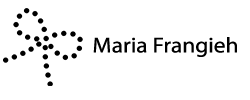A couple of days ago, while I was browsing my Facebook feed, a post by a friend caught my attention: Alexy Frangieh is a photographer, his work speaks for itself, you can check it out at his Facebook Page: Alexy Joffre Frangieh, I am sure you will love it.
Alexy was sharing his resentment as two Facebook pages “DSLR cinematography” and “Photography” downloaded his photo and posted it on their wall without taking his approval first and without sharing it. In the case of DSLR Cinematography and in the case of Photography, there is no reference to the author whatsoever! Check the photo below for an illustration of copyright infringement. Alexy found out about this photo by chance. Some of you might say that this is legal as they have mentioned the name of the photographer. I would like to clarify a couple of things, pages cannot tag personal profiles on Facebook by they can for sure tag other pages, which is the case below. The DSLR Cinematography did not share the photo, it downloaded it from Alexy’s profile and posted on its timeline without tagging the owner of the photo.
This controversial topic, copyright infringement of online content, is very interesting, I know it is interesting to me. Many have been debating this topic in vain.
Some say all content that is shared online without a watermark or logo or a disclaimer mentioning the need to take the permission of the owner before reproducing it, can be used by all users without referring to the source it was taken from. On the other hand, others say that this is an unethical work, and all content online belongs to the user who first shared it, noting that it is very difficult to track the first user who first shared it online.
Here are some “official” arguments I was able to collect after some research online regarding copyrighted material:
1- Copyrights online differ between one country and another, in some countries there does not exist any copyrights for online content shared (To my knowledge we do not have any in Lebanon).
2- The content shared on social networks is subject to the rules and regulations of that social network. Take for example Flickr the famous online photo management and sharing application, it gives its users the choice to allow other users to copy and use their photos or not. Flickr has clear Community Guidelines that all members of the community have to respect. On the other hand, Facebook has a different say, “When you publish content or information using the Public setting, it means that you are allowing everyone, including people off of Facebook, to access and use that information, and to associate it with you (i.e., your name and profile picture).” However they offer you the possibility to report the user in case the user misused the material.
3- In the case where the holder decides to go to court, the copyright holder has to provide unequivocal proof that they are the copyright holder.
As you can note, guidelines for shared content online differs between networks, which is creating a big confusion online. and sadly, the terms and conditions or the guidelines of online networks are rarely read by registering users, which might create similar problems to the one faced by Alexy. Many photographers, bloggers, tweeps, content creators in general have been shouting out similar copyright infringement cases, but action is very limited. However, esteemed brands have online guidelines when sharing their content, under which it is forbidden to use any content published online without respecting copyrights and referring to the source clearly.
Since content creators online feel unprotected they try to find a solution by protecting their content with watermarks and including a link or signature on the bottom side of their content. When Alexy was asked why he does not watermark his photos, he replied: “I have tried too hard to take the perfect shot with all the single details in all the corners of the photo, adding a watermark will ruin at least the composition”. I couldn’t agree more with him! I can also add that many remove the watermark or crop the photo and use it. So this is not the ultimate solution.
Alexy had also some words about the benefits of copyright protection:
“- It is advantageous to share instead of downloading and uploading, the author can still be in direct contact with the viewers, more than caring for personal credit
– It has never been a money issue as many claim and it is direct feedback that keeps the artist interested in posting online for free
– Here are some good practices that we photographers appreciate
Here is the outcome of this conversation
Thank you again, people who appreciate are those who keep us going”
It is sad to see that copyright infringement is increasing with time, and very little action is being done to prevent that! Imagine you have been working so hard to build a tree house and as soon as you are done and ready to enjoy your hard work, somebody comes and claims it his or shares it with you, most of the time, it is someone you don’t even know! Show some respect to other’s work, give them credit for their hard and beautiful work, you don’t know, you might end up one day at their place, and I for sure don’t wanna be you at that time! Respect copyright of online content, show respect and appreciation to content creators all over the world!
Feel free to drop me a comment below or join me on Facebook, Twitter, Pinterest, LinkedIn or Instagram, I look forward to hearing from you.








